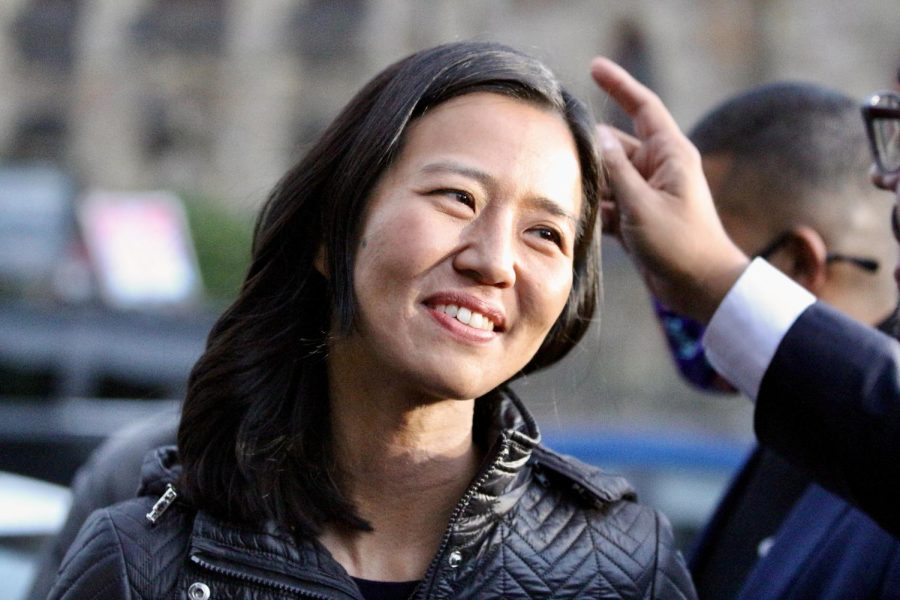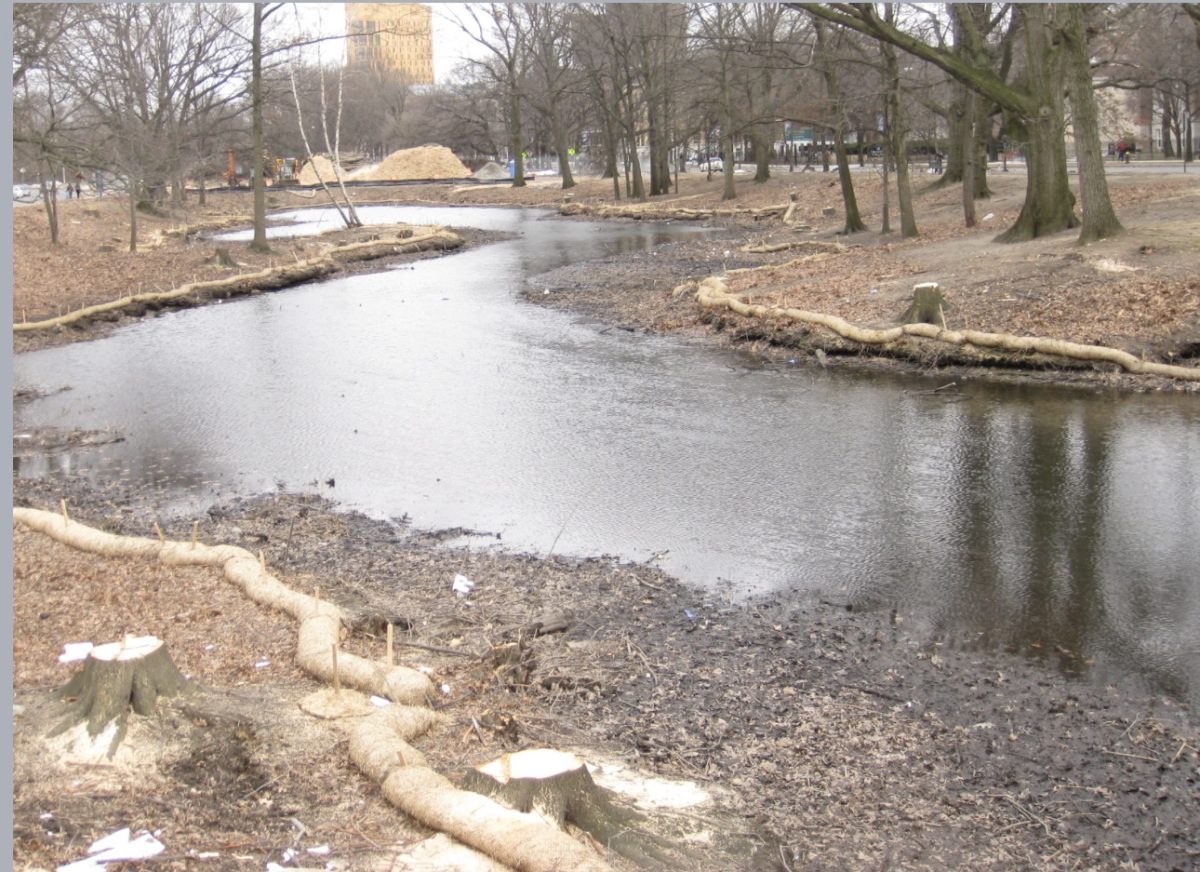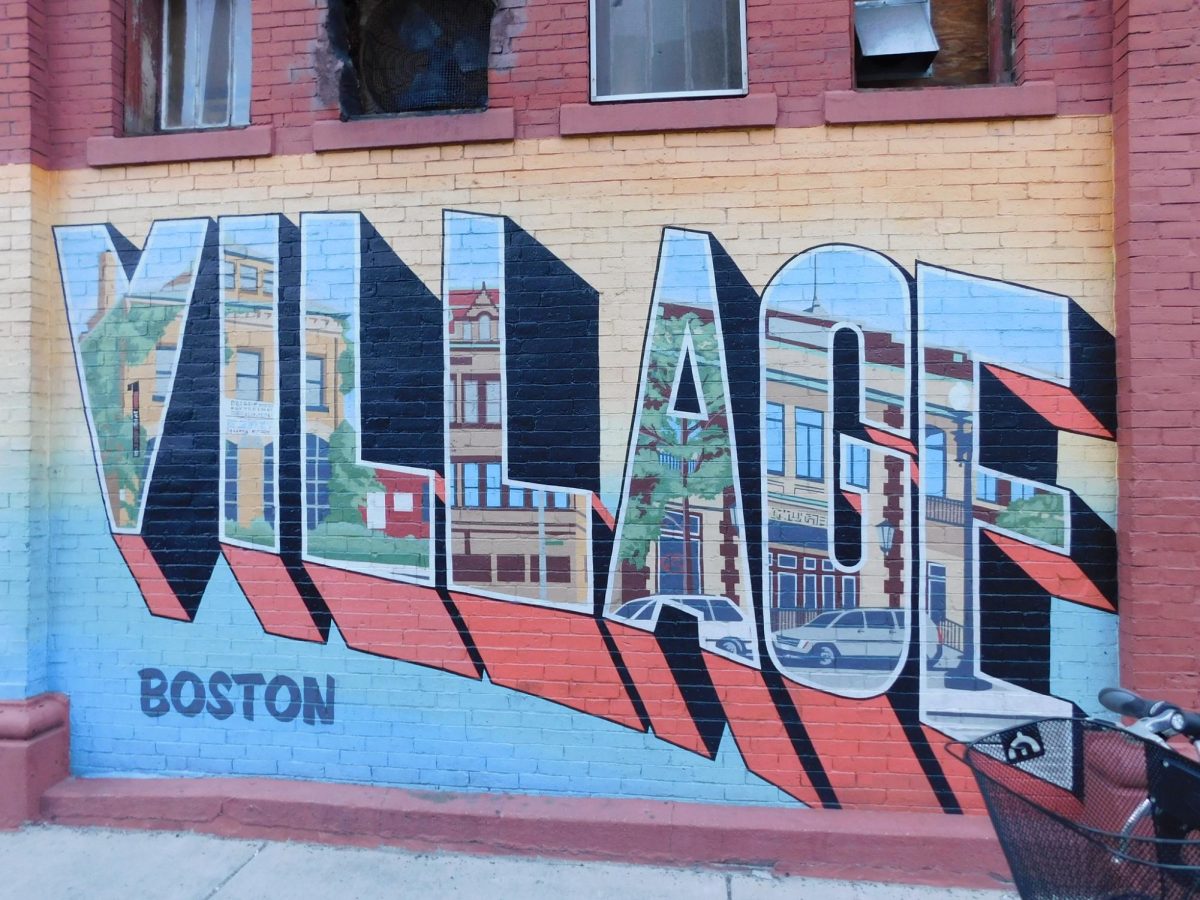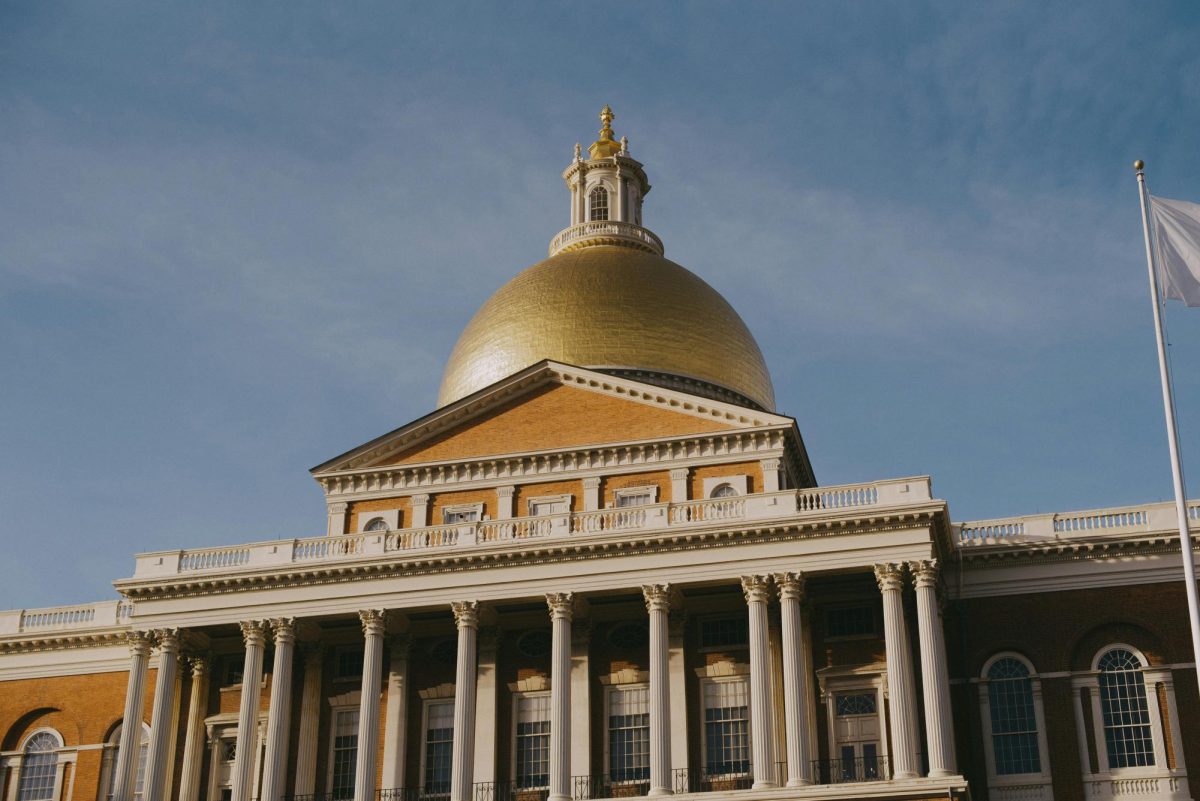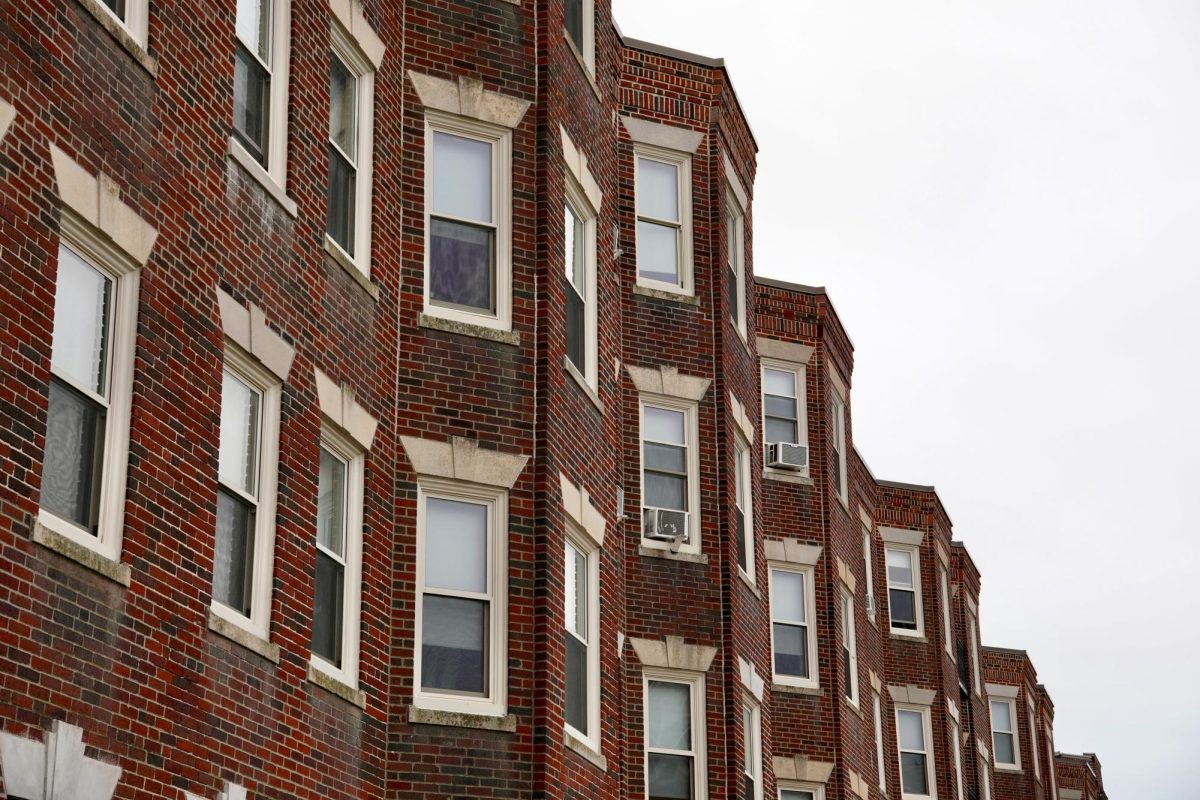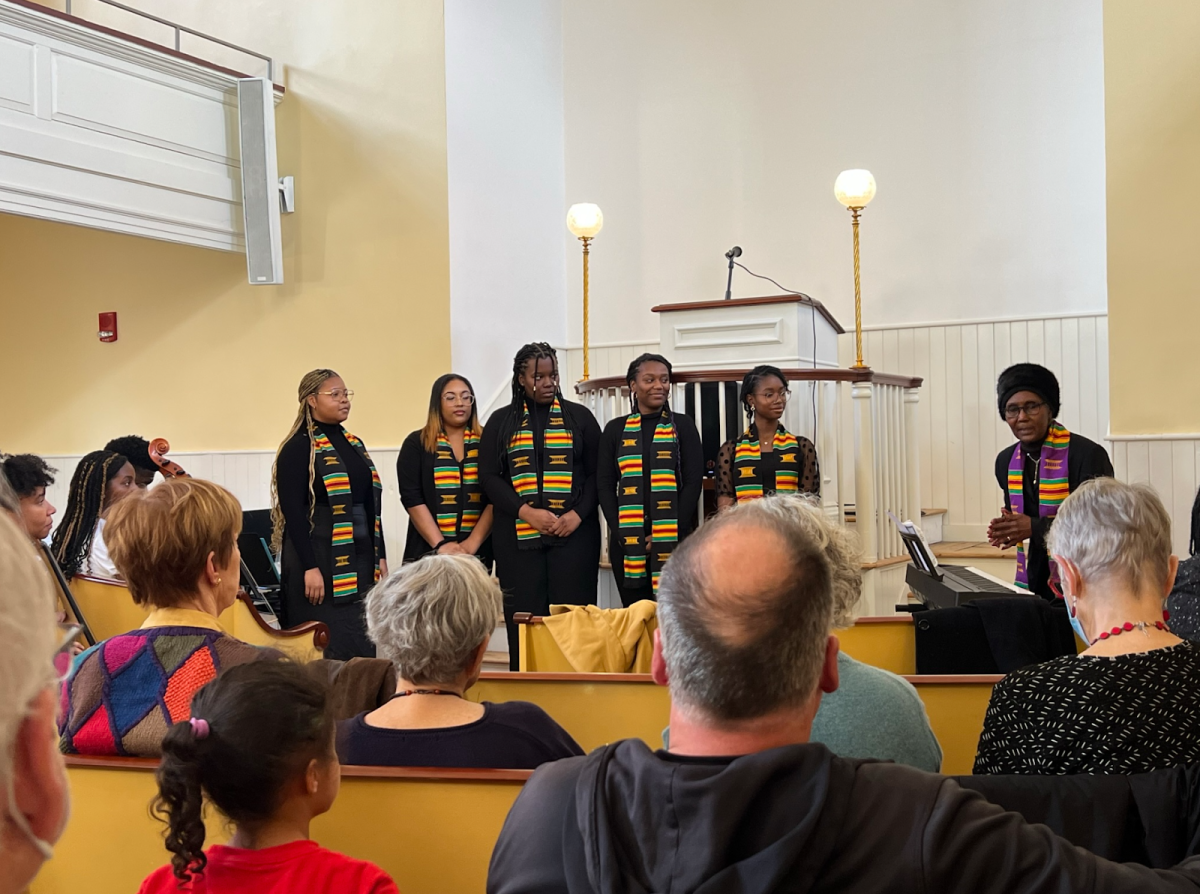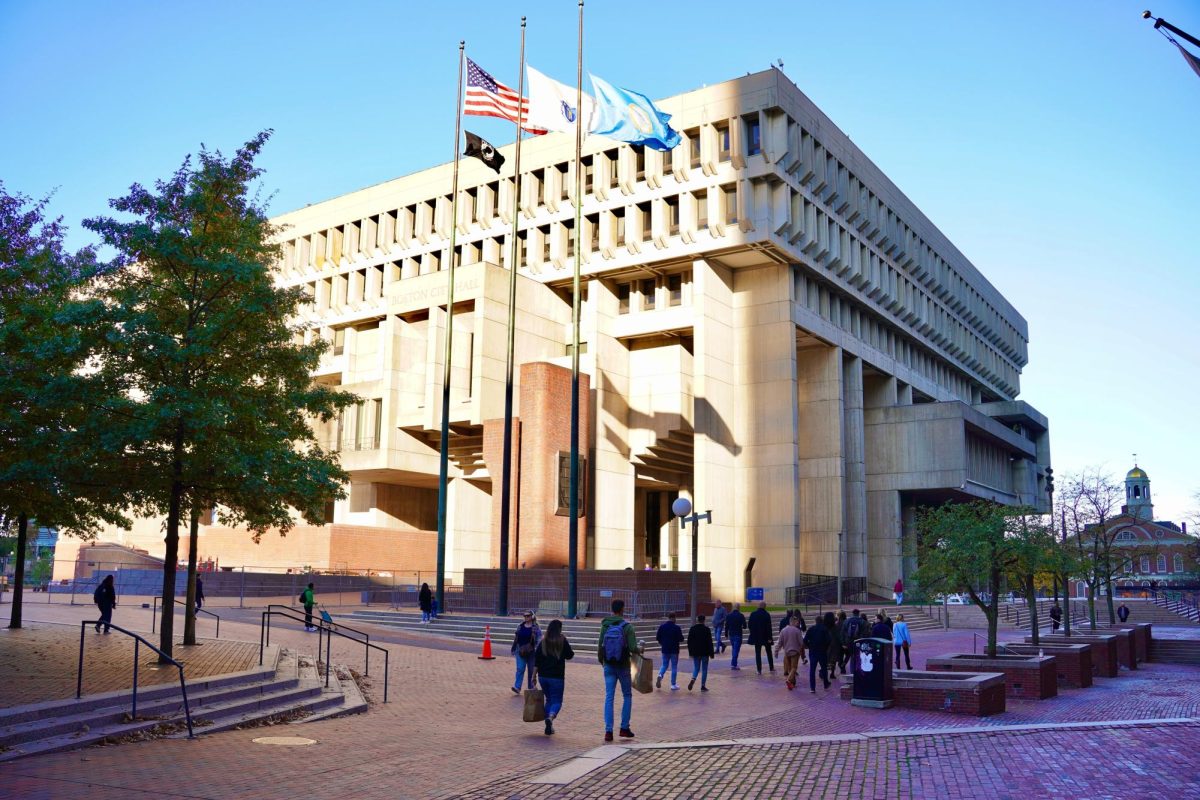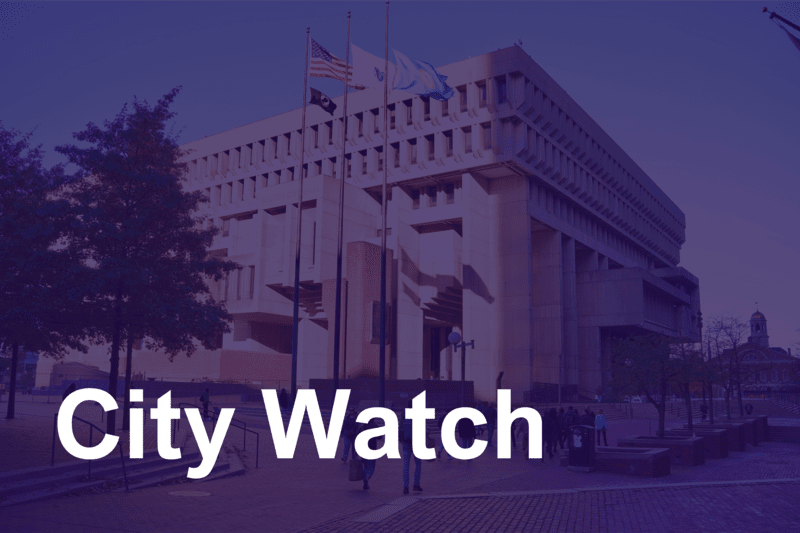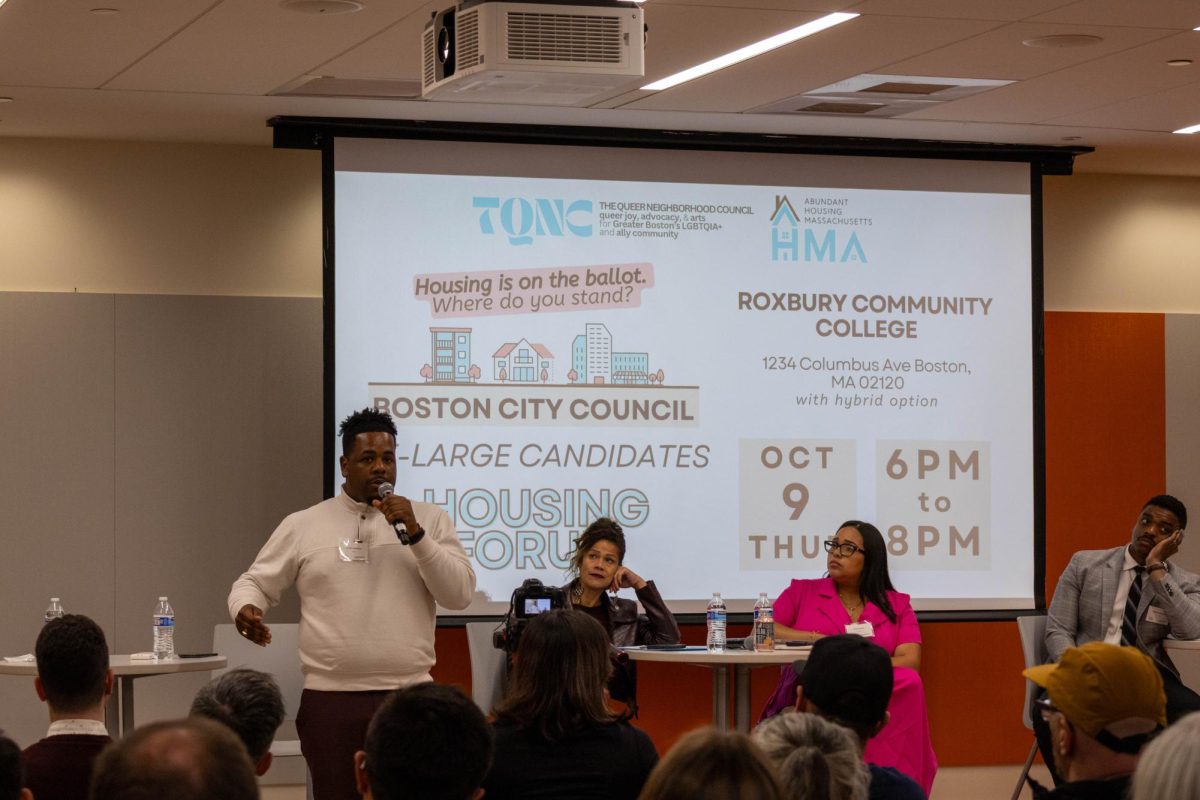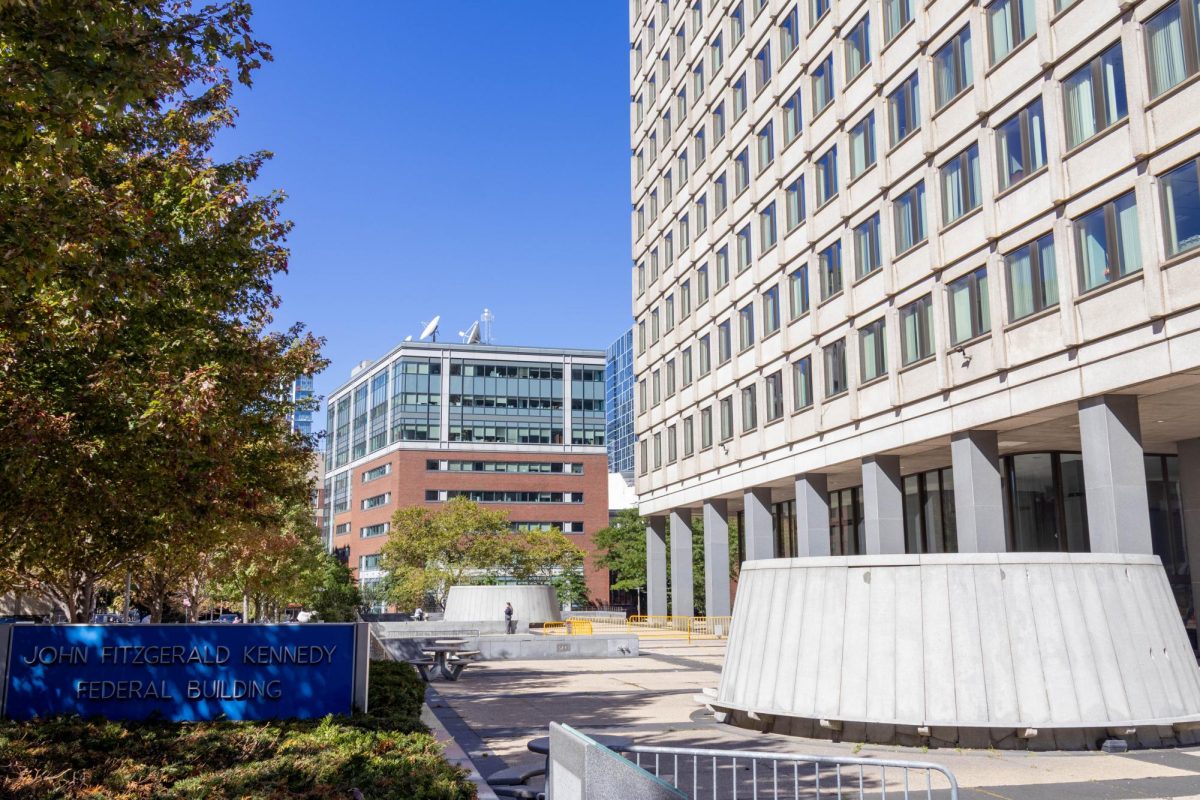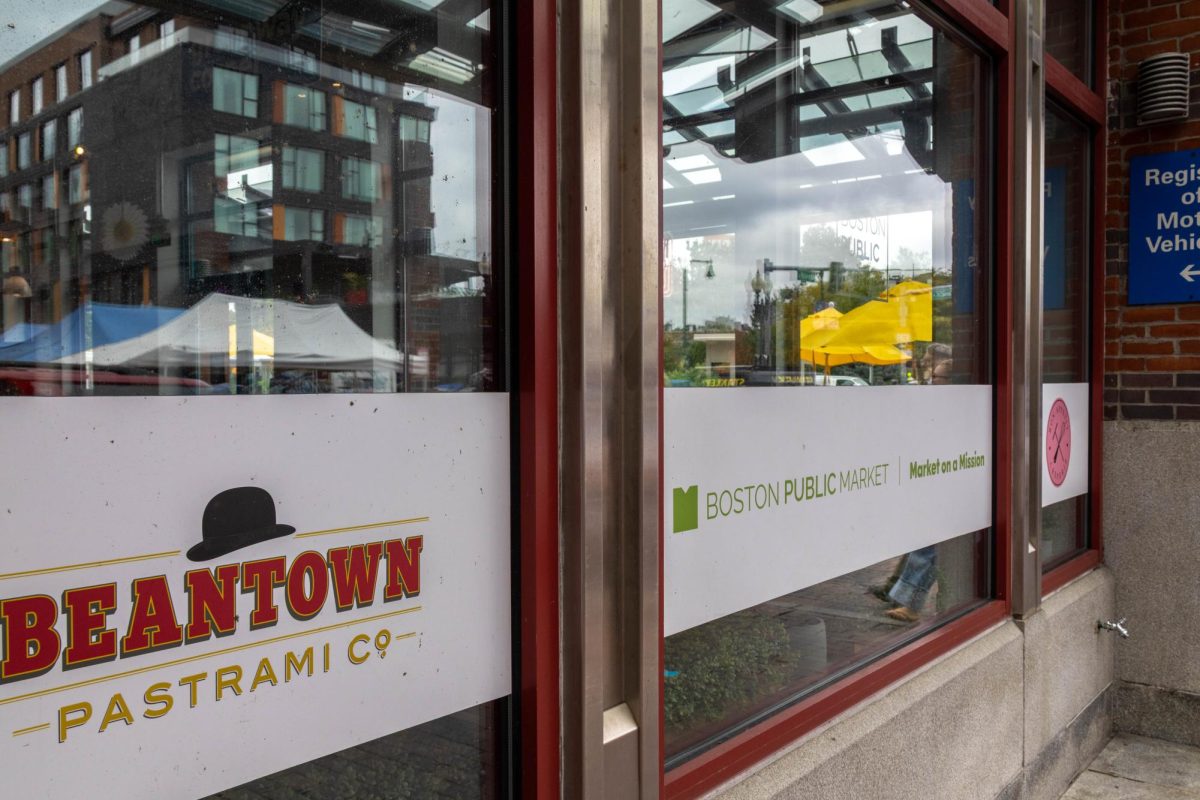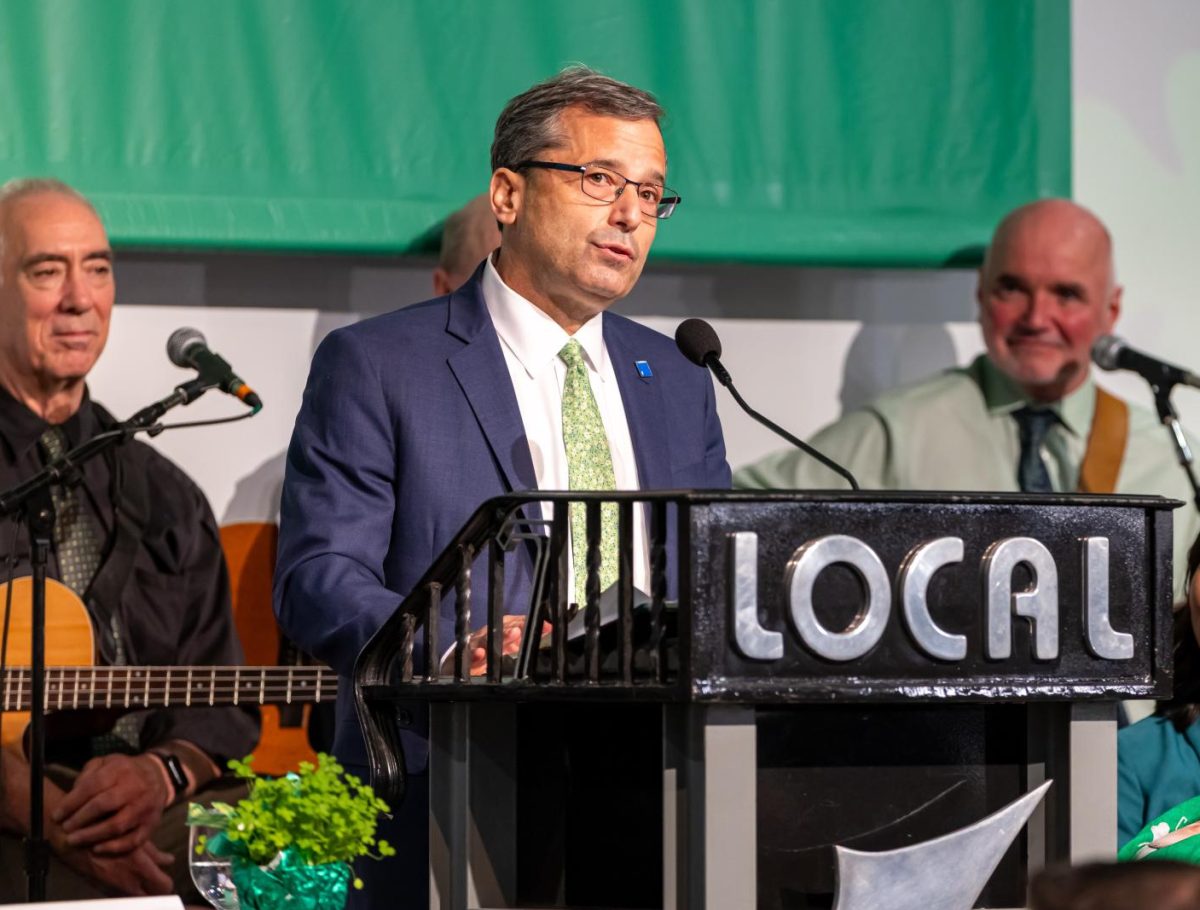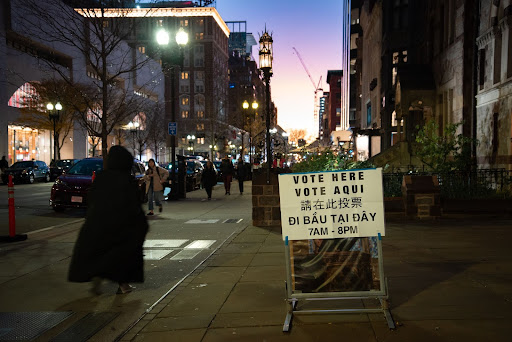Michelle Wu’s campaign for mayor in 2021 promised sweeping environmental legislation, action on the tent encampment at Massachusetts Avenue and Melnea Cass Boulevard and reformations to the public transport system.
In the two years since she took office, Wu has taken steps to address these issues. On Jan. 9, speaking at MGM Music Hall in her annual State of the City address, the mayor highlighted the city’s 2023 achievements, from the filling of 7,000 potholes to the hiring of 10,000 young people in “learn-and-earn” summer job programs.
The State of the City speech celebrated the city’s progress at the half-way point of the mayor’s term. But, according to community leaders and activists, although the mayor has prevailed in some policy arenas so far, in others her actions have fallen short.
Wu’s successes in transportation reform and getting the city of Boston a seat on the MBTA board of directors have drawn praises, but her shortcomings in significant environmental and housing legislation have been sharply critiqued.
Addressing the climate question
In August 2020, Wu released a comprehensive Green New Deal as a core component of her mayoral campaign. In the deal, Wu promised to divest from environmentally harmful corporations, reduce city-wide reliability on fossil fuels and improve Boston’s renewable energy output.
Wu stayed true to her word. Following her election, she signed an ordinance to divest $65 million in city investments from companies that profit from fossil fuel. Wu also entered Boston into Massachusetts’ state pilot program to ban fossil fuels from nearly all new construction. Keeping on the theme of limiting emissions through Boston’s infrastructure, her administration also launched a program called “Large Building Green Energy Retrofits Program.” With this initiative, building owners can apply for up to $50,000 per unit for “deep energy retrofits” to improve their greenhouse gas emissions, according to the plan released by Wu’s administration.
Among the city’s environmental activists, Wu’s climate ambition has been noticed.
“Wu’s climate justice agenda is the boldest I’ve seen across any mayor in Boston and perhaps across the country,” said Hessan Farooqi, an advocacy director at the Boston Climate Action Network. “Her administration has certainly done a good job of implementing existing laws, such as [Boston’s Building Emissions Reduction and Disclosure Ordinance] and [Boston Community Choice Electricity].”
While Wu has addressed certain promises in her Green New Deal, Farooqi sees an opportunity for her administration to push further. Part of her administration’s actions was the attempted enrollment in the state’s pilot program allowing 10 communities to ban fossil fuels in new constructions.
“There are areas in which state and federal policy has not caught up,” Farooqi stated. “The 10 community pilot project to ban fossil fuels shouldn’t be limited to just 10 communities.”
Despite her administration’s efforts, not all of campaign promises have come to fruition. In November, Wu pulled out of the pilot program because its parameters did not support Boston’s large population and constrained electrical system. Wu told the Globe she was given “clear indications that Boston would not be chosen for the one available spot.”
Farooqi cited the reversal as deeply frustrating, noting that “it harms Boston’s ability to meet our climate goals.”
He is not the only critic of this move. Lisa Cunningham, one of the founding directors of Brookline-based climate advocacy group ZeroCarbonMA, called her administration’s decision not to apply “a tremendous failure in leadership.” Cunningham, a longtime climate advocate and the main petitioner for Brookline’s 2019 fossil fuel prohibition, stated that Wu’s administration did not do enough to merit consideration for the pilot program.
“The way you put pressure on the legislation to expand the program is by actually applying,” Cunningham said. “If you don’t apply, the state legislature reads that Boston is not serious about the program.” While Wu said in an interview with GBH’s “Boston Public Radio” that there was not ample time to draw up a fully-realized plan by the application deadline, Cunningham pushed back on that notion.
“They had 11 months,” Cunningham said. “That was just as much time as everybody else.” She also stressed that some of Wu’s environmental actions were extensions of previous legislation, such as her continued work on former Mayor Walsh’s executive order requiring municipal buildings to target Net Zero Carbon standards.
While Cunningham blamed Wu’s administration for not pushing hard enough to be included in the 10 communities act, Farooqi felt the guidelines of the program itself are at fault.
“We’re in this mess in the first place because [the parameters of the pilot project are] ridiculous,” Farooqi said. “It’s significantly limiting the ability for cities and towns to clean up their air quality — and they want to participate.”
Climate advocates hoped this would be a leap forward, but Farooqi does not condemn Wu’s administration for the step backward.
“We all wanted Boston to do this, but the blame lies much more with the state policy regime than Wu’s administration,” he said.
A bold approach to urban planning and housing
Wu’s promises about urban planning and affordable housing were just as ambitious, yet less specific. Her campaign pledged to improve the existing city planning department, reform Boston’s zoning process, build the city’s future around affordable housing and deliver housing justice.
But at the beginning of her tenure, Wu’s office closed its doors to real estate developers. Previous mayors held plenty of one-on-one meetings about development plans. These would often result in projects that created jobs and revenue for the city.
While real estate developers will need to be patient, Wu has made significant moves to address Boston’s housing crisis in the meantime. She announced $50 million in funding to improve apartment complexes in Jamaica Plain and formed a rent stabilization advisory committee to address Boston’s surging cost of living.
Wu has addressed promises she made during her campaign, but her actions on the polarizing encampments at Massachusetts Avenue and Melnea Cass Boulevard, known as Mass. and Cass, have left some unsatisfied. In January 2022, her administration moved 154 people living in the area to housing shelters across the city.
Wu and her administration recently announced they will be taking further action to address the crisis at the encampment. Since a Nov. 23, 2023 when the ordinance first went into effect, the Boston Police Department has been prohibiting tents and tarps, Wu’s administration will provide more shelter beds and there will be an increased police presence in an attempt to curtail violence in the area and improve traffic flow.
“It’s not enough,” said Domingos Derosa, an advocate for affordable housing and a city contractor, who ran against Wu in the general election for city council at-large in 2019.
Mass. and Cass “has become one of the biggest matters, and it’s only gotten worse,” Derosa said.
Taking on the T
Wu’s equally ambitious promises on reforming the Massachusetts Bay Transportation Authority (MBTA) have resulted in significant steps taken to fix the notoriously frustrating transit system. Wu envisions a system of fare-free public transport for all of Boston. Her mayoral campaign promised several additional upgrades to the public transportation system, such as improving the city’s bike lanes, speeding up the pace of the painfully slow bus service and easing commuters’ trips with decongesting traffic.
While the tallest of those tasks is making public transport fare-free, Wu and her administration have begun working toward that goal. A day after she was sworn in, her office moved to receive approval for $8 million in federal COVID-19 relief funds to make the 23, 28 and 29 bus routes fare-free. The City Council approved the order, and the two-year program was officially launched on March 1, 2022.
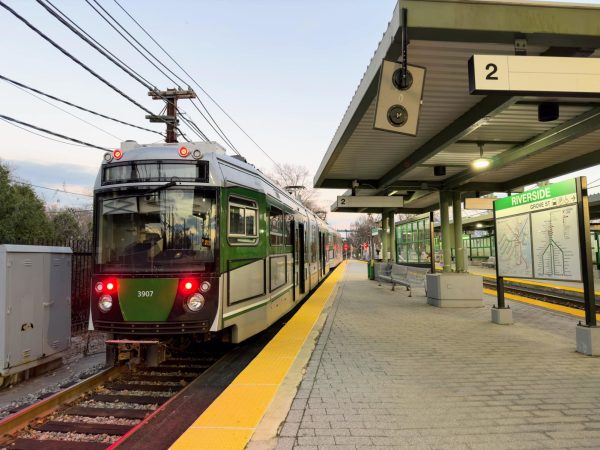
While Wu’s administration has pioneered accessibility for transportation, the City of Boston continues to suffer from subway shutdowns, including those caused by long-term projects like the Green Line Transformation Program.
“It pains me to say this, but [the shutdowns are] necessary in order to restore service quality to the levels that we need them to be,” said Jim Aloisi, the former Secretary of Transportation for Massachusetts. “We now have a general manager and a secretary that are doing the necessary and difficult things that need to be done, and the mayor doesn’t have any say or control over that. She only has one vote on the board of nine people.”
Aloisi, now a board member of the Boston-based advocacy group TransitMatters, said Wu is going above and beyond in taking steps to reform the T.
“The mayor has shown extraordinary leadership when it comes to designing a safer and more equitable landscape,” he said. Aloisi praised the city’s infrastructure plans for dedicated bus and bike lanes, another promise Wu made during her campaign, calling it “one of the most lasting achievements in her first couple of years.”
Aloisi believes Wu is transforming urban infrastructure into a more resilient and fair experience — one that is safer for residents after the implementation of dedicated bus and bike lanes.
While no mayor is going to fulfill every one of their campaign promises, taking significant action can inspire a city. For some of the most critical issues in the city of Boston, members of the community feel Wu has made progressive moves toward policies that reflect the needs of the city.
“It’s very challenging — politically — to do what she’s doing,” Aloisi said. “But she sticks to her guns; she has values and sticks to them. And those values are shared by Bostonians.”


